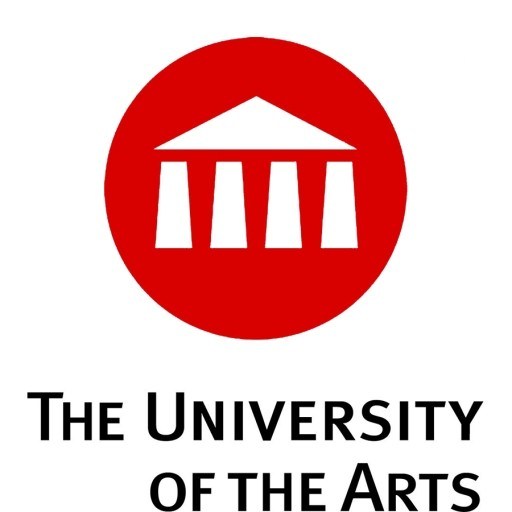Photos of university / #johnshopkinsu
The Film and Media Studies program at Johns Hopkins University offers students an in-depth exploration of the history, theory, and practice of film and media. This interdisciplinary program combines rigorous academic coursework with practical experience, enabling students to develop a comprehensive understanding of how visual culture shapes and reflects society. Through a diverse curriculum, students engage with critical analysis of cinematic works, media production techniques, and the social and cultural impacts of media technologies. The program emphasizes critical thinking, analytical skills, and creative expression, preparing graduates for careers in film criticism, media production, broadcasting, and related fields. Students have access to state-of-the-art facilities and resources, including editing suites, screening rooms, and digital labs, allowing them to hone their technical skills. The faculty, comprising leading scholars and industry professionals, guide students through topics such as film history, contemporary media trends, documentary filmmaking, visual storytelling, and media ethics. Opportunities for internships, research projects, and collaborations with media organizations are integral to the program, providing valuable real-world experience. The program also encourages students to explore interdisciplinary approaches, integrating perspectives from communications, anthropology, and the arts. Graduates of the Film and Media Studies program are well-equipped to pursue advanced studies or emerging careers in media production, film festivals, digital media, or academia. With a curriculum designed to foster innovation, critical engagement, and technical proficiency, the program prepares students to become thoughtful contributors to the evolving landscape of visual media and communication.
| Core Required Courses | ||
| AS.061.140 | Introduction to Cinema, 1892-1941 | 3 |
| AS.061.141 | Introduction to Cinema, 1941-present | 3 |
| One writing course: | 3 | |
|
AS.060.113 |
Expository Writing | |
|
AS.060.114 |
Expository Writing | |
|
AS.060.100 |
Introduction to Expository Writing | |
|
AS.061.226 |
Special Topics: Writing About Film | |
|
AS.360.133 |
Freshman Seminar: Great Books at Hopkins | |
| Foreign language (two semesters at elements level or demonstrated proficiency equivalent to one year of elements) | 6-9 | |
| Completion of Critical Studies or Production Track | ||
| Critical Studies Track | ||
| One (1) of the following introductory production/visual theory courses: | ||
|
AS.061.145 |
Introduction to Visual Language | |
|
AS.061.150 |
Introduction to Film Production: Rediscovering Early Cinema | |
|
AS.061.152 |
Introduction to Digital Video Production | |
| Two (2) 200-level critical studies film courses (POS tag FILM-CRITST) | ||
| Seven (7) critical studies courses at 300- or 400-level courses with POS tag FILM-CRITST (one JHU cross-listed class with POS tag FILM-CRITST and a maximum of 2 study abroad courses can count toward this requirement. Students are strongly encouraged to take one course focusing on cinema outside the United States. MI.061 classes cannot count toward this requirement) | ||
| AS.061.441 | Sen Proj-Film Production | 3.00 |
| Production Track | ||
| Two of the following: | ||
|
AS.061.145 |
Introduction to Visual Language | |
|
AS.061.150 |
Introduction to Film Production: Rediscovering Early Cinema | |
|
AS.061.152 |
Introduction to Digital Video Production | |
| One (1) 200-level critical studies film course (POS tag FILM-CRITST) | ||
| Four (4) 300- or 400-level critical studies film courses with POS tag FILM-CRITST (a maximum of one class outside Film and Media Studies can count toward this requirement. This coule be one cross-listed JHU class with POS tag FILM-CRITST or one study abroad course. Students are strongly encouraged to take one course focusing on cinema outside the United States. MI.061 classes cannot count toward this requirement) | ||
| One (1) 200-300 level screenwriting course (including, but may not be limited to): | ||
|
AS.061.314 |
Sketching the Scene: Image as Narrative Tool | |
|
AS.061.270 |
Writing for the Screen | |
|
AS.061.316 |
Characters for the Screenplay | |
|
AS.220.204 |
Introduction to Dramatic Writing: Film | |
|
AS.061.205 |
Introduction to Dramatic Writing: Film | |
|
AS.220.337 |
Intermediate Dramatic Writing: Film | |
| Intermediate Film Production or Intermediate Digital Video Production course (note: the prerequisite for Intermediate Film Production is AS.061.150) | ||
| One (1) Advanced Film Production Course: | ||
|
AS.061.301 |
Advanced Film Production: The mongrel film | |
|
AS.061.356 |
Narrative Productions | |
| AS.061.440 | Senior Capstone Project: Production | 3.00 |
- Application and Supplement
- $70 nonrefundable application fee or fee waiver
- Signed Early Decision Agreement
- Secondary School Report
- SAT Reasoning Test or ACT Test
- Mid-year Report*
- TOEFL or IELTS results (recommended)
- International Certification of Finances Form and Bank Statement
Scholarships
Both need- and merit-based financial assistance is available for international applicants, although both types of assistance are limited. The admissions process for international students is need-aware, meaning the offer of admission is directly linked to the student’s ability to meet expenses.
The Johns Hopkins University offers a comprehensive program in Film and Media Studies that combines theoretical understanding with practical skills in the analysis and creation of visual media. The curriculum is designed to provide students with a solid foundation in the history, theory, and criticism of film and media, alongside opportunities for hands-on experience in media production. Students engage with a diverse range of topics, including narrative techniques, experimental film, digital media, media industries, and the sociopolitical impacts of visual culture. Courses often include analysis of classical and contemporary films, studies of media representations, and explorations of technological changes affecting the industry. The program emphasizes critical thinking, media literacy, and creative skills, preparing students for careers in film production, media analysis, journalism, education, or further academic pursuits. Students can take advantage of state-of-the-art facilities, including editing suites, production studios, and screening rooms, as well as access to digital media software and equipment. The program also encourages research that intersects with other disciplines such as history, sociology, and cultural studies. Career services and internship opportunities help facilitate industry connections, giving students practical experience in media organizations, film festivals, or production companies. The faculty comprises experienced scholars and industry professionals who guide students through a rigorous academic program. Graduates often pursue graduate studies or find employment in entertainment, media analysis, education, and other fields where media literacy is valuable. Overall, the Film and Media Studies program at Johns Hopkins University equips students with both the analytical frameworks and technical skills needed to thrive in the evolving media landscape.










